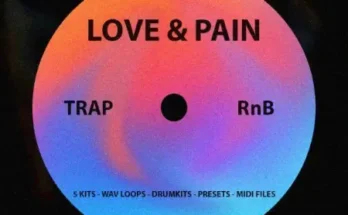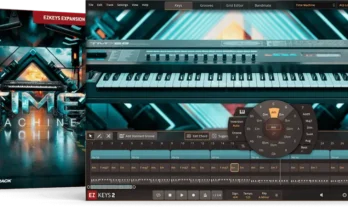Additive Synth In 5.1 Best And Simplest Method Yet
FANTASTiC | 24 March 2024 | 4 KB
Today, I’m excited to share with you the process of creating an additive synthesizer in Bitwig Studio 5.1, taking advantage of its new voice stacking feature. Here are the key moments:
•Introduction: Bitwig Studio 5.1’s release brings a fantastic additive synthesizer implementation. I find it to be the best and simplest yet.
•Starting Point: I begin with an empty Bitwig Studio 5.1 project and a single instrument track using one polygrid.
•Basic Setup: The synthesizer setup is straightforward: a sine oscillator, an AD envelope, and audio output. An amplifier is added for volume control.
•Creating Additive Synthesizer:Switch the grid to voice stacking mode with 16 voices for 16 partials.
•Introduce a step modulator with 16 steps and set it to hold timing.
•Adjust the step modulator for phase modulation and voice mode.
•Use a stack spread modulator to vary phase modulation.
•Modulating Pitch and Volume:I adjust the pitch for each of the 16 voices using a ratio modulator.
•Duplicate the setup to control volume, with the fundamental frequency being the loudest.
•Enhancing Sound Characteristics:I introduce decay modulation, varying decay times across partials.
•Convert the synthesizer to polyphonic with 10 voices.
•Experiment with phase and skew settings for unique sounds.
•Implement velocity sensitivity for partials using a step modulator.
•Advanced Techniques:Adjust tuning for stereo effect.
•Save step modulators as presets for consistency.
•Experiment with pitch ratio, volume, and decay for diverse sounds.
•Live Performance and Recording:I use Paul Stretch and Valhalla reverb for live sound manipulation.
•Record and adjust settings live for unique soundscapes.
•Conclusion:This synthesizer setup is easy to replicate and modify.
•It’s CPU intensive, so careful management is needed.
•I compare it to Ableton Live’s operator for reference.
•Final Thoughts:Discuss potential improvements and personal preferences.
•Mention the possibility of converting the setup into an FX grid for a polyphonic resonator.
Please REPORT in Comment Broken Links




